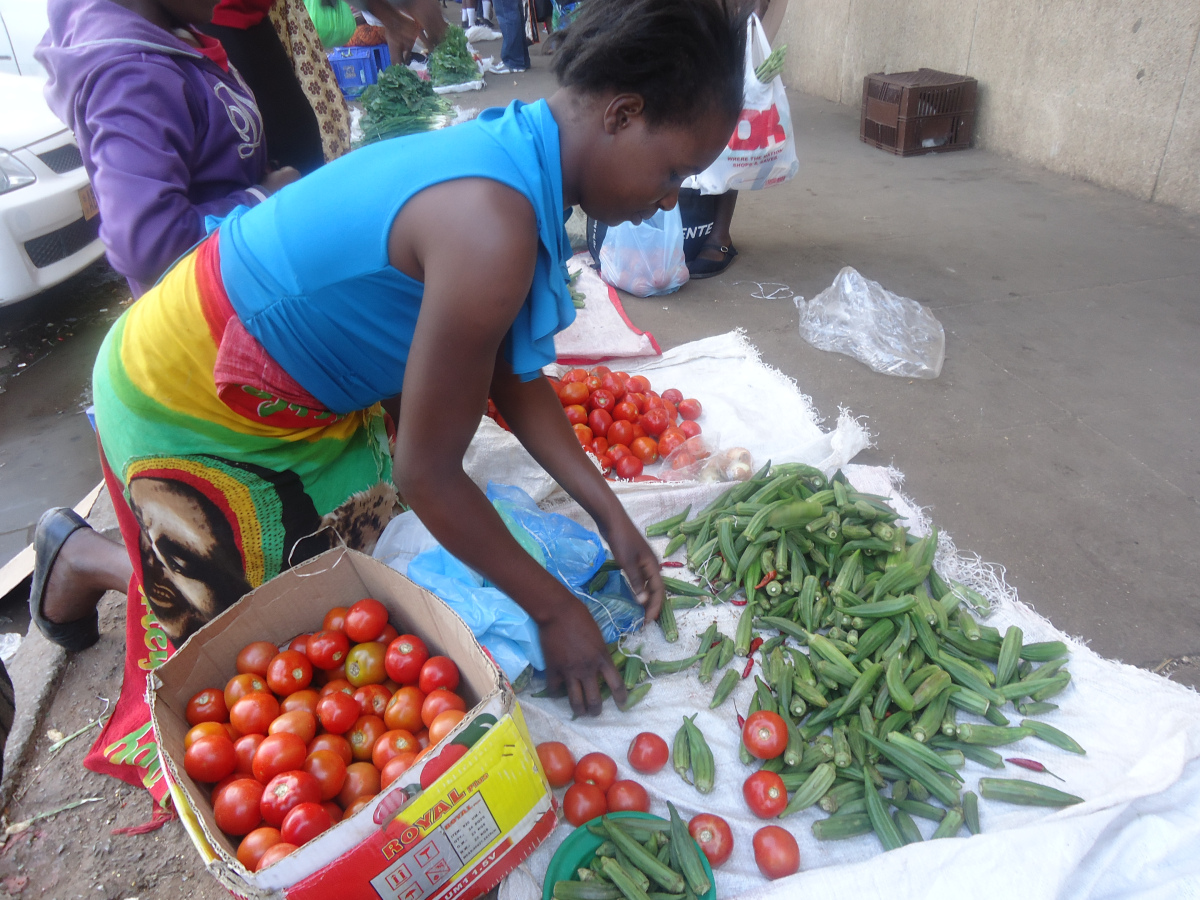The government has declared night vending illegal in Zimbabwe, citing public health risks, counterfeit goods trafficking, and drug abuse as some of the key reasons for the crackdown.
Minister of Local Government and Public Works Daniel Garwe said the country’s laws do not provide for nighttime street trading and warned that those defying the ban will face “the full wrath of the law.”
Addressing journalists in Bulawayo after a stakeholder meeting at the Bulawayo City Council chambers on Thursday, Garwe outlined multiple concerns linked to nighttime vending.
He said there was lack of sanitation facilities, leading to health hazards, there was proliferation of counterfeit goods, including cancer-causing products, increased drug and substance abuse under cover of darkness and that vendors hid wares on drains clogging drainage systems and worsening urban flooding.
The minister stated Zimbabwe’s laws currently do not permit night vending, and President Emmerson Mnangagwa has reinforced the directive.
“Zimbabwe’s laws and the constitution do not have provisions for night vending. Which means there is no night vending in any city and any RDC in Zimbabwe. It’s not provided for in our laws,” he said.
“So it’s illegal to be vending at night. Those that want to be stubborn and continue vending at night will be met with the full wrath of the law. We don’t want that to happen. Let’s be respectful of our laws and not participate in night vending because night vending is coming with a lot of things that we do not require in our lives.”
Garwe urged vendors to comply, stressing that economic challenges, which he claimed were caused by sanctions, should not justify law breaking.
“Let’s never be fooled by people speaking on social media saying, ‘government does not see that people need to be allowed because our economy is going through some challenges.’ Yes, we know we’ve been going through some challenges because of the sanctions imposed upon us and many other challenges that are there. But we cannot say because we are going through this we must break our own laws. We can’t do that,” said the minister.
One of the biggest concerns the minister cited is lack of sanitation at night, leading to open defecation and waterborne diseases.
“Firstly, there are no sanitary provisions at night. All the toilets we normally use from eating houses like fast foods and hotels will be closed. So people are now using people’s buildings and sanitary lanes to help themselves when nature calls,” he said.
“That burden is now left in the hands of the city fathers to employ people to come and clean human waste put there by someone, deliberately so. We can’t look for money to come and clean streets dirtened in that regard.”
With Zimbabwe still battling cholera outbreaks, Garwe warned night vending could worsen the crisis.
“That kind of behaviour attracts waterborne diseases. We are in the rainy season and we all know that for a change, all the southern provinces received more rain than any other part of the country,” he said.
“Imagine, Bulawayo having to suffer from the scale of cholera, waterborne diseases, cholera, dysentery, typhoid, because of things that we can stop. So these are the things that the government has looked at and said, ‘we must not allow people to be delinquent and start saying I’m a night vendor,’ when we know the threat of these waterborne diseases is before us.”
Garwe also linked night vending to the influx of counterfeit goods, including harmful products.
“We are all aware of the proliferation of counterfeit products into our country. These counterfeit products are finding their way into our cities or rural communities through night vending. People are driving illegally into our country and start selling counterfeit products which are finding their way into our homes and causing diseases, cancers that we are now seeing. It’s not acceptable,” he said.
Another major issue is the rise in drug and substance abuse, which Garwe said thrives under nighttime vending.
“Drug and substance abuse activities are rife at night. By allowing vendors to be trading at night, that is a creation of fertile ground for drug and substance abuse activities,” he said, noting the issue was affecting youthful communities.
“So we cannot create an environment that breeds drug and substance abuse activities at night and during the day we are saying ‘no to drug and substance abuse’. We must say no to drug and substance abuse in its entirety.”
The minister also clarified that vendor licensing falls under the Ministry of Women Affairs, Community, Small and Medium Enterprises Development, while his ministry’s role is to provide designated vending spaces.
“We don’t have such infrastructure as it is now. But once we have put that infrastructure in place and it’s budgeted for, when private sector players want to join hands with us and they provide the facilities, yes, it will be allowed,” he said, acknowledging some countries allowed night vending as they had proper infrastructure.
“We can’t say, because it’s happening in India, it must happen here now. India has the infrastructure in place. They put the infrastructure in place first, just like any other economy which has night vending.”
He cited Harare’s recent floods as an example of disorder caused by vendors hiding goods in drains.
“Because of our lack of respect for ourselves or delinquent behaviour, we hide our wares in drains. We put them in card boxes and hide them in drains. When it rains, like it did last month in Harare, all the drains were clogged and water started flowing backwards into the streets, and there was pandemonium that Harare is now flooded. Floods, which were not caused by the rains, but caused by people’s bad behaviour,” he said.

